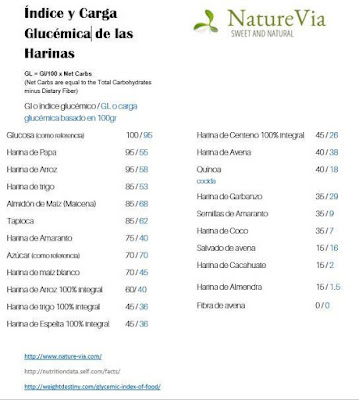Carbohydrates of Quality- Research Paper
CARBOHYDRATES OF QUALITY
Diagnosed with hypertension, doing his best
to cut on calories and exercise regularly, this pre-diabetic man was tired of
trying. What was the key to a healthier lifestyle? Lowering his intake of
carbohydrates? Consuming less calories? Cutting on fats? Maybe, but sometimes
the key is not to just focus on quantity, the solution is look at the quality of calories, fats, or
carbohydrates. The glycemic index is the measure of how fast a carbohydrate is
absorbed into the bloodstream. The table of glycemic index (GI) ranges from 1
to 100. A high glycemic index would be one above 70; low glycemic index is
below 55. To give some additional perspective, sugar has a GI of 70 and glucose
has a GI of 100. One should eat carbohydrates that have a low-glycemic index
because they do not spike sugar in the bloodstream, help in controlling hunger,
and prevent a number of diseases.
Consider
two meals: pasta with mashed potatoes as side dish and broccoli with brown rice.
Carbohydrates with a high GI, the mashed potatoes and pasta in this case, are
digested and absorbed into our bloodstream at a fast pace. This spikes blood
sugar. Maya Adam, MD, lecturer at Stanford University, explained that “Now, if
on the other hand, you were to choose the broccoli and brown rice as your
snack, your body would have to work harder to break down the carbs in that food.”
Glucose would be released slowly and steadily into the bloodstream producing no
spike. In addition, constantly spiking blood sugar can accelerate aging.
Secondly,
low GI Carbohydrates help in controlling hunger. When a high-GI carbohydrate is
absorbed into the bloodstream it creates a sugar spike, as stated before. The pancreas quickly reacts and secrets the
hormone insulin, which converts glucose into fats. A moment after sugar spikes,
insulin spikes. The insulin brings down blood sugar below its normal range. That
is when hunger starts. On the contrary, carbs with a low GI are not so. Because
these carbohydrates are broken down slowly, insulin is secreted in proportion
to the slow release of glucose into the bloodstream. The amount of blood sugar
does decrease, but not so much as to go below the normal range. In addition,
the body triggers “natural appetite suppressors” (gisymbol.com/healthy-weight).
Thus, low-GI carbohydrates conquer hunger.
Finally, Low GI Carbohydrates help in preventing various diseases. For
example, the Glycemic Index Foundation reported that “Epidemiologic studies and
clinical trials have shown that low-GI diets protect against type 2 diabetes”
(Newsletter, September 2012). In people
with diabetes, a low-GI diet has shown improved insulin sensitivity and
improved glycemic control.
Moreover,
when the body receives high-GI carbs, it releases stress hormones. So, a low-GI
diet aids in reducing stress. The
following studies also showed that low-GI carbohydrates can also help prevent
cardiovascular diseases, retinal disease, acne, and colorectal cancer:
·
Glycemic load,
glycemic index, and risk of cardiovascular diseases: meta-analyses of
prospective studies. *
·
Low-Glycemic
foods can decrease systolic and diastolic blood pressure in the short term. **
·
Dietary
hyperglycemia, glycemic index, and metabolic retinal diseases. ***
·
Diet and Acne: A
review of the Evidence. ^
·
Dietary Glycemic
Index and Glycemic Load and risk of colorectal cancer: results from the
EPIC-Italy study. ^^
In terms of quality, Low-GI carbohydrates
win, for they do not drastically raise blood sugar, suppress hunger, and prevent a number
of diseases. They do not spike sugar and do not accelerate aging. They do not
just suppress hunger; they give steady energy for longer periods of time. They
prevent diseases, and help control them. Why not start consuming carbohydrates
of better quality?
WORKS CITED
“What are the benefits of a low GI Diet?”
http://www.gisymbol.com/about/frequently-asked-questions/ (accessed May 12, 2016).
Adam, Maya.
“Hunger and the ‘Glycemic Index.” http://www.coursera.org/learn/childnutrition/lecutre/BWD3/ (accessed May 11, 2016)
*MaXY, et. al. Atherosclerosis: 2012 Aug; 223(2):
491-6
**Hosseininasab et. al. Int J. Hypertens. E pub 2015
Oct. 5
*** Chiu et al., 2011, Prog Retn Eye Res, 2011 Jan;
30(1):18-5
^ Spenceret al. Internatiuonal Journal of Dermatology
2009; 48: 339-347
^^Sieri
et al. Int J Cancer. 2015 Jan IS; 136 (12): 2923-31

Comments
Post a Comment